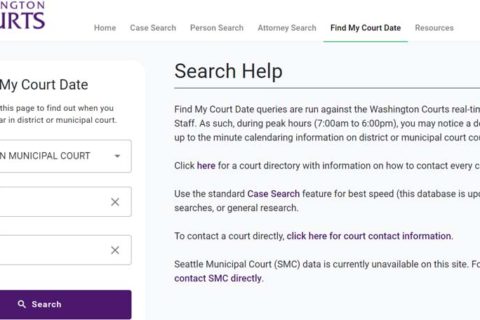Whether prisons should be abolished is still being debated today, since it was proposed by the prison abolition movement. The pros and cons that continue to appear side by side definitely trigger various arguments, which cannot be avoided, to continuously question whether society can really live without prison.
The argument for abolishing prisons has received a lot of denials from various parties, as if this idea were just a joke and a mockery. The denials are not without reason. There are also many strong reasons given by people who oppose the Prison Abolition Movement. They think prison abolition is highly unlikely.
Okay, let’s find out what many people who oppose prison abolition say about it!
Why Are People Against the Prison Abolition Movement?
The idea of abolishing prisons has received attention from many parties, not least Charles Seligson Law Professor Rachel Barkow, who has explored the negative impacts that would result if prisons were completely abolished.
Barkow has analyzed that prison abolition and concluded her analysis by finding significant practical and political risks if the prisons are abolished. She stated in her paper that the abolitionists should focus on the two movements that have been proposed previously, i.e., deinstitutionalization and the “defund the police” movement.
In fact, the failure of the “defund the police” movement was a blowback for police departments as they faced increased funding and efforts to prevent local law enforcement budgets from being reduced below a certain level.
Since there are similarities between the Prison Abolition Movement and the movement to deinstitutionalize state mental hospitals in the 1960s and 1970s, Barkow also looked closely at this. The two approaches both consider how abolitionist arguments would likely be applied and how political approaches to crime and punishment are considered.
Although abolitionists emphasize that prison abolition will replace prisons to achieve justice and achieve the same goals, if we look closely, what can we take from the deinstitutionalization movement? Did it work?
Unfortunately, not! Sure, there are so many lessons to be learned by abolitionists from the deinstitutionalization movement, including:
1. Achieving success and failure simultaneously
The deinstitutionalization movement achieved its goal of successfully closing state hospitals, but it failed to find community health centers and other alternatives to serve the needs of people who were previously in government hospitals.
Of course, this is a fact that prison abolition activists must pay attention to and consider because their agenda will depend on solving the root causes of crime, which will of course require large amounts of state funding, as is the case with the “defund the police” movement.
2. Ignoring people with the most serious mental health needs
Of course, this is a failure and a mistake for the deinstitutionalization movement. They may have succeeded in closing the state mental hospitals, but what about the people who really need very serious mental health care?
In fact, deinstitutionalization movement activists tend to ignore these people. Well, that’s the main reason why many people with serious mental health issues are homeless and do not have any helpful services. Additionally, when hospitals close, these people fall through the cracks of policy, and it’s more complicated than political advocates would like.
Of course, prison abolitionists will also encounter a similar danger since they focus on people who commit crimes due to structural inequality. Although abolitionists argue that we would not have crime if we fixed those root causes, that is not really the only cause of crime.
We definitely cannot control all people who harm others because of lust, jealousy, greed, vengeance, or religious or political ideology. Many opponents of prison abolition argue that structural improvements will not stop it, so there needs to be a societal response that addresses people who may harm others for that reason.
3. Deinstitutionalization activists solely rely on communities
Barkow found that deinstitutionalization activities only rely on their communities to overcome problems, so it might not work. They focused on community support, but it did not materialize.
This is similar to what abolitionists say about communities filling important gaps for the nation, but there are real question marks over whether this can happen in a society as complex and diverse as ours. So, if prison abolition is truly possible, abolitionists must also consider this.
Well, those are some reasons why many parties are against the prison abolition movement since the negative impacts that will be caused will be greater and the solutions provided by abolitionists are very small. The point is that prison abolition would do more harm than it could prevent.
How Did Abolitionists View the Prison Abolition Movement Itself?
There is no doubt that there is also misunderstanding about the prison abolition movement among abolitionists. Some consider this movement monolithic. However, other people and groups identify as abolitionists, but they have different views about the term.
Generally, people assume that the movement is truly trying to end the use of all prisons. However, there are also those who consider the abolition of punishment more of a guiding principle and do not necessarily think that this means the end of all forms of imprisonment.
Abolitionists are also optimistic that prisoners will be willing to accept punishment in a different form, but there will still be restrictions on freedom subject to the rules of a community.
So, what form of punishment would abolitionists give to offenders? Because many people agree that prison is not an ideal solution for criminal justice, the alternative punishment that might be given to violators is “restorative justice.”
However, this idea still faces conflict because they consider that the United States is not as safe as countries that implement restorative justice, considering that many countries do not use prison as punishment. According to many legal experts, restorative justice implies practices that are centered on victims rather than on the offenders themselves.
The lack of clarity in using alternative punishments for offenders is one of the reasons why prison abolition always fails and does not receive support from various parties. In essence, prison abolition does not simply restructure the criminal justice system; it instead restructures society in a way that allows overlooked people to succeed.
In short, whatever alternative is taken as a substitute for prison sentences will be a determining factor in the success of the prison abolition movement. Additionally, it should be a “positive project” for society as a whole and not just a missed opportunity.

A bookworm and researcher especially related to law and citizenship education. I spend time every day in front of the internet and the campus library.





